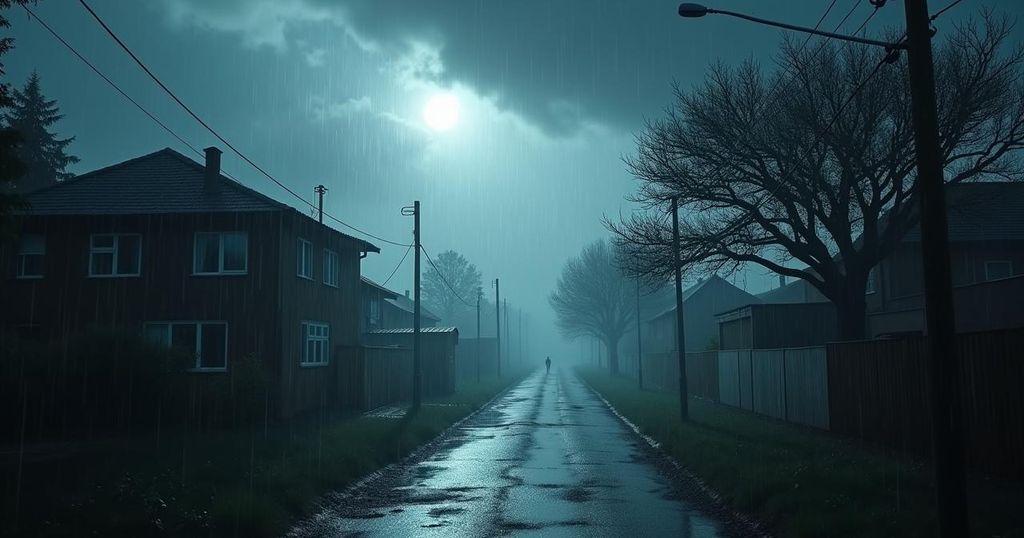Human-Caused Climate Change Intensifies Hurricane Helene’s Devastation
Hurricane Helene’s rainfall increased by approximately 10% and wind speeds by 11% due to climate change, according to a new study. Warming ocean temperatures in the Gulf of Mexico significantly contributed to the hurricane’s intensity. Helene’s impact resulted in over 230 fatalities, marking it as one of the deadliest storms in the U.S. since Katrina. Experts warn that ongoing climate change will lead to more intense hurricanes and catastrophic flooding, necessitating urgent improvements in resilience and energy practices.
A recent study has highlighted the significant impact of human-induced climate change on Hurricane Helene, revealing that it increased the hurricane’s rainfall by approximately 10% and intensified its wind speeds by around 11%. This urgent analysis was conducted by World Weather Attribution (WWA) amid growing concerns as Hurricane Milton poses new threats to the Florida coast soon after Helene’s catastrophic effects. The WWA reported that warmer ocean temperatures in the Gulf of Mexico, which were approximately 2 degrees Celsius above the average, made conditions for Helene approximately 200 to 500 times more likely. Ben Clarke, a co-author of the study and climate researcher at Imperial College London, emphasized that the hurricane’s devastating impact was magnified due to warmer air holding more moisture, leading to unprecedented rainfall figures. It was noted that the ongoing burning of fossil fuels could lead to more frequent hurricanes similar to Helene, which caused not only coastal damage but also catastrophic inland flooding, resulting in the loss of over 230 lives. Helene registered itself as one of the deadliest hurricanes to strike the continental United States since Hurricane Katrina in 2005. Measurements indicated that over 40 trillion gallons of rain fell across the impacted regions, attributed to the warming climate which exacerbated the storm’s power. Further assessments suggested that hurricanes like Helene, which were previously projected to occur every 130 years, are now 2.5 times more likely due to changing climate patterns. A parallel analysis from the Lawrence Berkeley National Lab indicated that climate change led to up to 50% more rainfall in specific areas, making such extreme weather events far more probable. Experts advocate for urgent improvements in emergency preparedness and resilience strategies to mitigate the impacts of future storms, underscoring the necessity to address fossil fuel reliance with new energy initiatives. The studies serve as a pivotal reminder of the potential future climate risks if current trends continue without immediate intervention.
The article discusses a pressing study regarding Hurricane Helene, emphasizing the role of climate change in exacerbating such natural disasters. It provides insights into how anthropogenic influences have intensified both the rainfall and wind speed of hurricanes, particularly Helene, and links it to the broader implications of ongoing fossil fuel consumption and warmer ocean temperatures. The background of these findings lies in a connection between climate patterns and the increasing frequency and intensity of severe weather events. Furthermore, the article highlights recent trends indicating a worrying shift in hurricane severity, underlining the urgency for enhanced preparedness and mitigation strategies to combat these climate-induced challenges.
In conclusion, the study underscores the critical influence of human-driven climate change on the severity of natural disasters like Hurricane Helene. With increased rainfall and intensified winds attributing to climate change, future storms may become more frequent and disastrous. The findings call for immediate action to alter energy consumption patterns and improve preparedness strategies to combat the escalating risks posed by such hurricanes.
Original Source: www.newschainonline.com




Post Comment